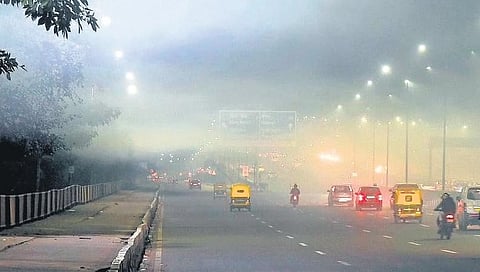Graded Response Action Plan to pre-empt pollution in Delhi
NEW DELHI: A ‘finer’ Graded Response Action Plan (GRAP) a set of anti-air pollution measures followed in the national capital and its vicinity according to the severity of the situation — will come into effect from October 1 and environment experts believe that advance action this year will lead to lesser incidences of severe pollution.
Earlier, the GRAP would come into effect from October 15. The Commission for Air Quality Management (CAQM) for management of air quality in Delhi-NCR decided to implement GRAP early, considering suggestions from the public and experts that advance action can prevent drastic deterioration in air quality.
Under the revised GRAP, curbs can be imposed on polluting activities up to three days in advance based on forecasts.
Earlier, the authorities would implement the measures only after the PM2.5 and PM10 concentration touched a particular threshold. This time, restrictions will be based on air quality index (AQI) values.
Vivek Chattopadhyaya, Senior Programme Manager, Clean Air Programme, Centre for Science and Environment said, “The pre-emptive action should prevent the sudden deterioration of the air quality unless meteorological conditions become highly unfavorable.”
“The agencies should strengthen their baseline level action so that there is no need for emergency measures. They should be able to foresee a contingency and prepare a fool proof plan to deal with it, such as arranging CNG carriers and trucks for continuous supply of essential items,” he said.
Sunil Dahiya, an analyst at Centre for Research on Energy and Clean Air, hoped that advance action would lead to lesser incidences of severe air quality. “Only sustained awareness campaigns and continuous engagement with all stakeholders will resolve the problems such as stubble burning. Action just before the stubble burning period is unlikely to yield good results,” he said.
The environment department will be using the new real-time source apportionment system which will help ascertain the contribution of all pollution sources in real time.

